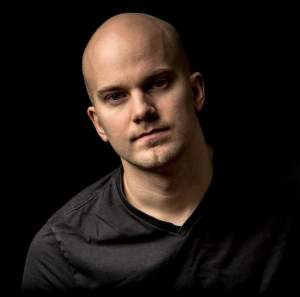
Mitä olisimmekaan ilman kanssaihmisiämme? Kenen kanssa nauraisimme, kenen kanssa rakastaisimme, kenen kanssa eläisimme elämää?
Yksinkö?
Kaiken oheishömpötyksen jälkeen, toiset ihmiset tekevät elämästä elämisen arvoista. Heitä varten me olemme olemassa, ja he ovat olemassa meitä varten.

Ihmiset luovat toisilleen asioita. Tuotteita, tavaroita, taidetta, palveluita. Mitä olisi kirja, jos sitä ei olisi kukaan lukemassa?
Mitä olisi taulu, jos sitä ei olisi kukaan katsomassa?
Ja mitä olisi ääni, jos ei sitä kukaan kuulisi?
Luin jostain kauniin sitaatin:
Kaiken hyvän, mitä olet saanut, olet saanut toisilta ihmisiltä.
Mielestäni aika hienosti sanottu. Joku toinen ihminen on tuonkin lausahduksen keksinyt.

Meihin on tutkitusti sisäänrakennettu altruismi, toisten pyyteetön auttaminen. Se on yksi lajimme menestyksen kannalta olennaisimpia tekijöitä. Halumme auttaa ja tukea toisiamme on jotain todella suurta ja sen varassa me tälläkin hetkellä elämme, vaikkei sitä aina uskoisikaan. Yhteiskuntamme pyörivät auttamisen ympärillä.
Ihmisen sisäänrakennettua altruismia on tutkittu. Tutkitusti jo pieni taaperokin rientää aikuisen avuksi, hänen kurotellessaan esinettä, johon ei aivan yllä. Pieni taaperokin haluaa auttaa toisia. Samaa tapahtuu eläinmaailmassakin.

Puheet ihmisen itsekkyydestä ovat pitkälti kulttuurin luomia. Survival of the fittest ei ollut alunperin Darwinin keksintö, vaan Herbert Spencerin, joka oli ekonomisti ja edisti sosiaalista darwinismia. Hän pölli termin Darwinilta ja muunsi sen omiin tarkoituksiinsa. Alunperin Darwin nimenomaan painotti yhteistyötä olennaisena osana lajien menestystä.
Tässä erittäin oivaltava osio empatiatutkija Emma Seppälän haastattelusta:
Lisa: I’m sure that you must occasionally meet skeptics that are like, compassion research? What is that?
Emma: Absolutely. Economists have told us that first and foremost, we are selfish. “Look out for number one,” is what people are told to be successful.
Psychologists have disproven economists again and again on this point. If you give adults only a few seconds to make a decision that is either fair or selfish, their first instinct is to do something fair. The same is true with a child. If we give people longer to think about it, maybe they will think more selfishly, but that very first instinct is fair, altruistic, and even exists in the animal world.
A rat will go out of its way to help another rat if it is suffering. We see it in apes, chimps, so altruism is something that is very innate. In fact, you’ve probably heard of “survival of the fittest.” That is often attributed to Darwin, but he actually didn’t coin this phrase. It was said by Herbert Spencer, a social Darwinist, and someone who had an agenda to justify racial and social hierarchy. If you look at what Darwin had to say, his message was much more about the fact that we would not have survived had it not been for sympathy.

Just look at us. We are so vulnerable. There is no way that our ancestors could have survived in the wild if we hadn’t stuck together. Human beings have babies who have the longest period of vulnerable time that they need protection for.
We need to have that caring, nurturing aspect as a strong part of ourselves. It is actually our most predominate feature. Well then, why are people selfish sometimes? There is a norm of self interest that has been propagated by economists—sometimes people want to help, but they stop themselves because they are worried that others will think they are doing it out of self-interest.
In terms of compassion science, research shows that if you have more compassion and altruism in your life you are happier, healthier, recover from disease faster, and live longer. There is a study of people who have had very stressful life events and usually when you have had a very stressful life event your longevity is shortened.
They saw that, for some people, it wasn’t the case. When they looked closer at the data, they saw that even if you’d had a big, stressful life event, if you engaged in altruistic actions it was as if that stressor hadn’t happened. You are buffered, protected from that stress.”

Emme siis ole läheskään niin itsekkäitä ja individualistisia, kuin saatamme kuvitella. Kulttuurin luomat kuvat ja odotukset vaikuttavat käytökseemme ja tunteisiimme.
Toisten auttamisesta ja jaetusta ilosta saa yleensä kaikkein voimakkaimman hyvänolon tunteen ja aika loogista se onkin, sillä lajimme olemassaolo perustuu sille.
Jeesataan siis toisiamme : )
Terveisin,
Mikko


Näin just! Kova blogaus 💪
TykkääLiked by 1 henkilö
Jee, kiitti ! 8)
TykkääTykkää